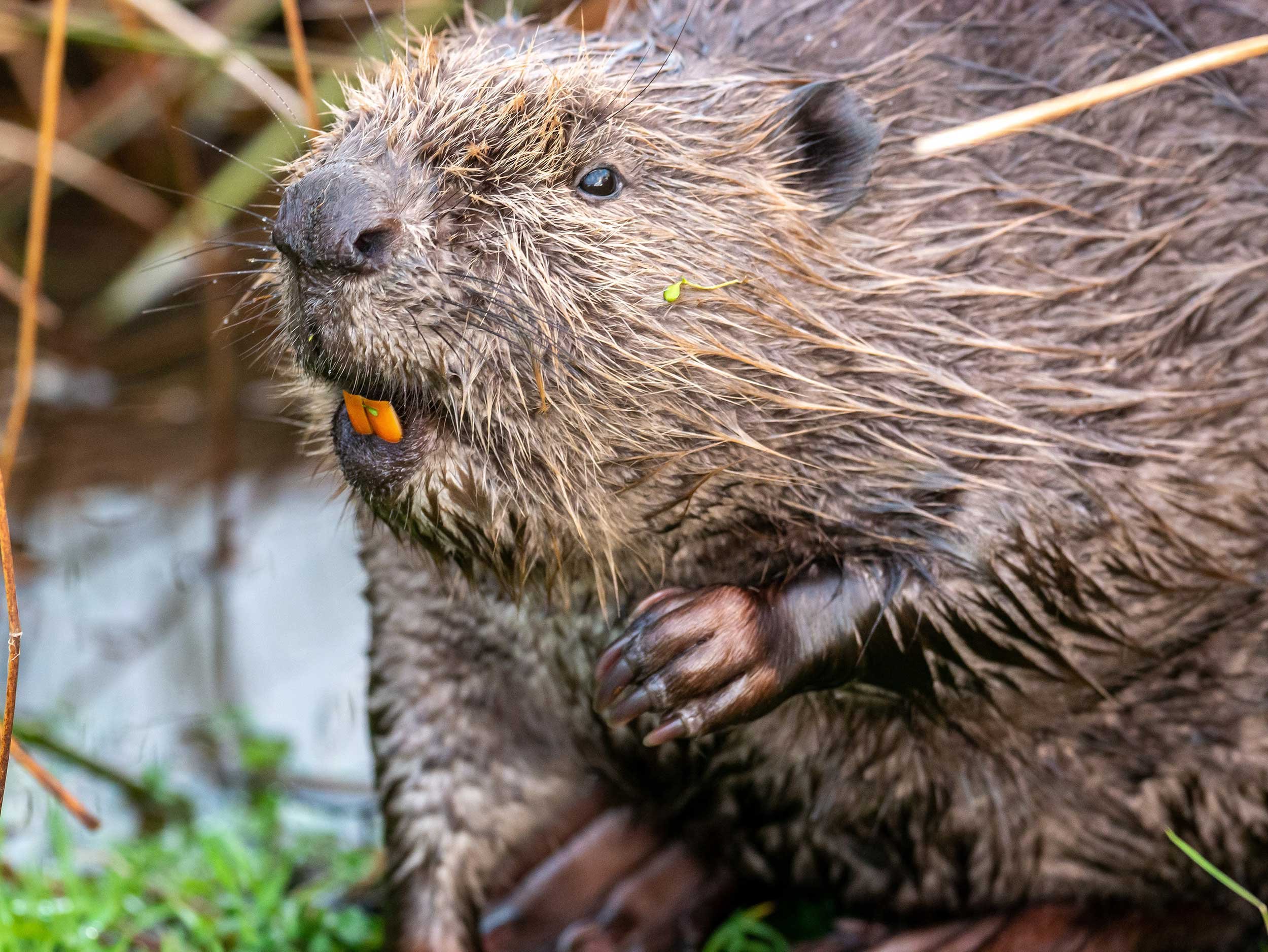Beaver talks by Chris Jones
Beaver [CREDIT: Bamff Wildland]
This spring, Chris Jones of The Cornwall Beaver Project has been delivering a series of fascinating talks at different venues around The Lizard, sharing fascinating facts and observations about how beavers live and the positive effects they have on Nature.
But it’s not just for Nature – humans benefit too, as their wetland creation reduces the risk of flooding downstream. As climate change affects our weather we expect an increased incidence of flash floods. In the beaver enclosure at Woodland Valley Farm, the flow of water exiting the site has halved.
Beavers and biodiversity
We’ve learned about the general behaviour of beavers, how they live in close-knit families of parents and kits (sometimes two generations of kits), how they build dams and lodges on a single site within a territory of about a mile of stream, how they eat almost any vegetation but are partial to willow, how 70% of trees they fell are in fact coppiced and not destroyed but grow again, and how their activity attracts a rich biodiversity of other species. Fish stocks generally increase, as dams make wonderful nurseries for young fish, and fish can travel through or around dams.
Chris has had biological surveys done at his home, Woodland Valley Farm; the home of the Cornwall Beaver Project. These have shown an astonishing 17 varieties of dragonfly and 11 species of bat. 10 types of bird have moved in which were not there before, including kingfisher and water rail.
Beavers and flooding
Since last year, beavers are legally native in England and Scotland, and are legally protected. Beaver territories in river valleys are less likely to interfere with farms and gardens than territories on flat plains where flooding can be disruptive.
Beavers are known to live in approximately 12 rivers, and of these, 11 are accepted by landowners without conflict. Only on the River Tay have farmers been unhappy, which is understandable as the land either side of the Tay is flat, and provides good agricultural crops.
Beavers cause land to flood, which, depending on the landscape, is usually beneficial as it reduces the risk of deluge downstream. Silt collects in the new ponds, allowing purer water to emerge downstream.
Living in harmony…
Beaver management groups are starting up. People are being trained to help landowners to react to beavers. Trees can be protected, and dams might reasonably and legally be removed or bypassed within the first two weeks of building if the beavers’ choice of site is not acceptable for the landowner or community.
Cornwall’s rivers and streams run through valleys where the risk of beavers causing unwanted flooding to farmland is minimal, unlike in counties where there are flat flood plains. We hope our farmers will accept the benefits of beavers on or near their land in Cornwall, and not worry about unlikely unwanted consequences.
As farmers own most of the land on The Lizard, it’s crucial that they accept the presence of beavers if this wonderful species is to be part of our landscape again. Ask farmers you know, “Could you tolerate beavers?”
If they want to know more, please refer to Chris Jones directly through The Cornwall Beaver Project, or write to wildlifegroundswell@gmail.com


